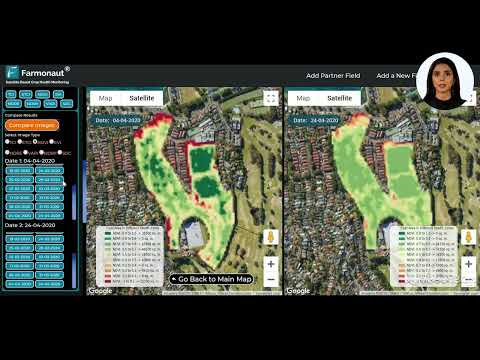Your Complete Guide to FSA Farm Loan Programs: Financing Options for American Farmers and Ranchers

“The FSA offers over 6 different types of farm loan programs, including microloans for small farmers and emergency loans.”
Welcome to our comprehensive guide on Farm Service Agency (FSA) farm loan programs and agricultural financing options designed to support American farmers and ranchers. In this article, we’ll explore the various FSA loan types, eligibility requirements, and how these programs can help you initiate, expand, or maintain your agricultural business. Whether you’re running a family farm, exploring organic farming practices, or looking to implement climate-smart farming techniques, we’ve got you covered.
Understanding FSA Farm Loan Programs
The Farm Service Agency, a part of the United States Department of Agriculture (USDA), offers a wide range of farm loan programs to support American agriculture. These programs are designed to provide financial assistance to farmers and ranchers who might not qualify for commercial loans due to various reasons, including lack of credit history, insufficient collateral, or challenging economic conditions.
Let’s dive into the main types of FSA loan programs available:
- Farm Operating Loans
- Farm Ownership Loans
- Microloans for Small Farmers
- Emergency Loans for Natural Disasters
- Youth Loans
- Native American Tribal Loans
Each of these loan types serves a specific purpose and comes with its own set of eligibility requirements and terms. We’ll explore each in detail to help you understand which might be the best fit for your agricultural needs.
Farm Operating Loans: Keeping Your Farm Running Smoothly
Farm operating loans are essential for day-to-day agricultural operations. These loans can be used for various purposes, including:
- Purchasing equipment and machinery
- Buying livestock and feed
- Acquiring seed and fertilizer
- Covering operating costs
- Implementing conservation practices
The FSA offers both direct and guaranteed operating loans. Direct loans are provided and serviced by the FSA, while guaranteed loans are made by commercial lenders with an FSA guarantee against significant losses.
Key Features of Farm Operating Loans:
- Maximum loan amount: $400,000 (direct) or $1,825,000 (guaranteed)
- Interest rates: Fixed or variable, based on current market rates
- Repayment terms: Usually 1 to 7 years, depending on the loan purpose
To be eligible for a farm operating loan, you must:
- Be a U.S. citizen or qualified alien
- Have an acceptable credit history
- Be unable to obtain credit elsewhere
- Have sufficient farming experience or education
These loans can be a lifeline for farmers facing cash flow challenges or looking to expand their operations. They provide the necessary capital to keep your farm running efficiently and productively.
Farm Ownership Loans: Building Your Agricultural Legacy
Farm ownership loans are designed to help farmers and ranchers purchase or expand their agricultural land. These loans can be used for:
- Buying a farm or ranch
- Enlarging an existing operation
- Making improvements to agricultural land
- Constructing new farm buildings
- Refinancing debt (in some cases)
Like operating loans, farm ownership loans are available as both direct and guaranteed options.
Key Features of Farm Ownership Loans:
- Maximum loan amount: $600,000 (direct) or $1,825,000 (guaranteed)
- Interest rates: Fixed, based on current market rates
- Repayment terms: Up to 40 years
Eligibility requirements for farm ownership loans are similar to those for operating loans, with additional emphasis on the applicant’s ability to successfully operate a farm or ranch.
These loans can be instrumental in helping beginning farmers establish their operations or allowing established farmers to expand and secure their agricultural future.
Microloans: Supporting Small and Beginning Farmers
Microloans are a subset of operating and ownership loans designed to meet the needs of small and beginning farmers, niche crop producers, and non-traditional farm operations. These loans offer a simplified application process and reduced paperwork.
Key Features of Microloans:
- Maximum loan amount: $50,000
- Interest rates: Fixed, based on current market rates
- Repayment terms: Up to 25 years for farm ownership microloans, 1 to 7 years for operating microloans
Microloans can be used for various purposes, including:
- Purchasing essential tools and equipment
- Fencing and irrigation system improvements
- Hoop houses for extending the growing season
- Essential farm vehicles
These loans are particularly beneficial for urban farmers, organic producers, and those involved in local food production and sales.
Emergency Loans: Recovery Support for Natural Disasters
When natural disasters strike, FSA emergency loans can provide crucial financial support to help farmers and ranchers recover from losses. These loans are available in counties designated as disaster areas by the President or Secretary of Agriculture.
Emergency loans can be used to:
- Restore or replace essential property
- Pay production costs for the disaster year
- Pay essential family living expenses
- Reorganize the farming operation
- Refinance certain debts
Key Features of Emergency Loans:
- Maximum loan amount: $500,000
- Interest rate: Fixed, based on current market rates
- Repayment terms: 1 to 7 years for non-real estate purposes, up to 40 years for physical losses on real estate
To be eligible for an emergency loan, farmers must have suffered a qualifying loss and meet other specific criteria related to the disaster event.
Youth Loans: Nurturing the Next Generation of Farmers
FSA youth loans are designed to support young people (ages 10-20) who are participating in 4-H clubs, FFA, or similar organizations. These loans help finance income-producing, agriculture-related projects.
Key Features of Youth Loans:
- Maximum loan amount: $5,000
- Interest rate: Fixed, based on current market rates
- Repayment terms: 1 to 7 years
Youth loans can be used to buy livestock, seed, equipment, and supplies for projects that will generate income to repay the loan. These loans provide valuable experience in financial responsibility and agricultural entrepreneurship for young people interested in farming careers.
“The USDA’s Farm Service Agency provides targeted funding for minority, women, youth, and Native American tribal loan programs.”
Native American Tribal Loans: Supporting Indigenous Agriculture
The FSA offers specific loan programs for Native American tribes and tribal corporations. These loans can be used to purchase land within the tribe’s reservation or acquire land in trust for the tribe.
Key Features of Native American Tribal Loans:
- Loan amounts vary based on specific program and needs
- Interest rates and terms are similar to other FSA loan programs
- Loans can be used for land acquisition and agricultural development
These loans play a crucial role in preserving and expanding Native American agricultural traditions and economic opportunities.
Sustainable Agriculture Financing: Investing in the Future
The FSA also supports sustainable and organic farming practices through its loan programs. Farmers interested in implementing climate-smart farming techniques or transitioning to organic production can use various FSA loans to finance these initiatives.
Some sustainable agriculture practices that can be financed include:
- Cover cropping and crop rotation
- Water conservation measures
- Renewable energy systems (e.g., solar panels, wind turbines)
- Organic certification costs
By supporting these practices, the FSA helps farmers improve their environmental stewardship while maintaining profitable operations.
Comparing FSA Farm Loan Programs
To help you better understand the different FSA loan options available, we’ve compiled a comprehensive comparison table:
| Loan Type | Purpose | Maximum Loan Amount | Interest Rate Range | Repayment Term | Key Eligibility Criteria |
|---|---|---|---|---|---|
| Farm Ownership Loans | Purchase or expand farmland | $600,000 (direct), $1,825,000 (guaranteed) | 2.5% – 5% | Up to 40 years | U.S. citizen, unable to obtain credit elsewhere, farming experience |
| Farm Operating Loans | Cover operating expenses | $400,000 (direct), $1,825,000 (guaranteed) | 2.875% – 5.25% | 1 to 7 years | U.S. citizen, unable to obtain credit elsewhere, acceptable credit history |
| Microloans | Small-scale or niche operations | $50,000 | 2.875% – 5% | Up to 25 years (ownership), 1-7 years (operating) | Small or beginning farmers, simplified application process |
| Emergency Loans | Recovery from natural disasters | $500,000 | 3.75% | 1-7 years (non-real estate), up to 40 years (real estate) | Located in declared disaster area, suffered qualifying loss |
| Youth Loans | Agriculture-related projects for young people | $5,000 | 2.875% | 1 to 7 years | Age 10-20, member of 4-H, FFA, or similar organization |
This table provides a quick overview of the main FSA loan programs, helping you identify which options might be most suitable for your agricultural needs.
Eligibility Requirements and Application Process
While specific eligibility requirements vary depending on the loan type, some general criteria apply to most FSA loan programs:
- U.S. citizenship or qualified alien status
- Inability to obtain credit from commercial sources
- Acceptable credit history
- Sufficient farming experience or education (usually 3 years)
- Compliance with FSA’s eligibility requirements for federal loans
The application process typically involves the following steps:
- Contact your local FSA office to discuss your needs and eligibility
- Complete the required application forms
- Provide necessary documentation (tax returns, farm records, financial statements)
- Undergo a credit check and farm assessment
- Wait for loan approval (processing times vary by loan type and complexity)
It’s important to note that the FSA encourages applicants to apply early, as funding for some loan programs may be limited.
Leveraging Technology to Complement FSA Loans
While FSA loans provide crucial financial support, modern farmers can enhance their operations’ efficiency and productivity by leveraging agricultural technology. Farmonaut, a leading agricultural technology company, offers advanced satellite-based farm management solutions that can complement your FSA loan-funded initiatives.
Farmonaut’s platform provides valuable services such as:
- Real-time crop health monitoring
- AI-based advisory systems
- Resource management tools
- Blockchain-based traceability solutions
By integrating these technologies into your farming practices, you can optimize resource usage, improve crop yields, and enhance overall farm management. This can lead to better returns on your FSA loan investments and increased long-term sustainability for your agricultural business.
Explore Farmonaut’s solutions:
FAQs About FSA Farm Loan Programs
Q: Can I apply for multiple FSA loans simultaneously?
A: Yes, you can apply for multiple FSA loans if you meet the eligibility requirements for each. However, there are limits on the total amount of outstanding FSA loan debt you can have at one time.
Q: Are there special provisions for beginning farmers?
A: Yes, the FSA offers targeted funds and more favorable terms for beginning farmers, including lower down payment requirements and lower interest rates in some cases.
Q: Can I use FSA loans to transition to organic farming?
A: Absolutely. FSA loans can be used to cover costs associated with transitioning to organic production, including certification costs and implementing organic farming practices.
Q: What happens if I can’t repay my FSA loan?
A: The FSA offers loan servicing options for borrowers facing financial difficulties. These may include rescheduling payments, deferring payments, or restructuring the loan. It’s crucial to contact your FSA loan officer as soon as you anticipate repayment problems.
Q: Are there any loan forgiveness programs available through the FSA?
A: While the FSA doesn’t typically offer loan forgiveness, they do provide various options for loan servicing and debt relief in cases of financial hardship. Additionally, some FSA loans may be eligible for Public Service Loan Forgiveness if the borrower meets specific criteria.
Conclusion: Empowering American Agriculture Through FSA Loans
FSA farm loan programs play a vital role in supporting and sustaining American agriculture. From helping beginning farmers establish their operations to assisting established farmers in expanding or recovering from natural disasters, these loans provide essential financial support to the agricultural community.
By understanding the various loan options available, their specific purposes, and eligibility requirements, you can make informed decisions about which programs best suit your farming needs. Whether you’re looking to purchase land, cover operating expenses, or implement sustainable farming practices, there’s likely an FSA loan program that can help you achieve your goals.
Remember, successful farming in the 21st century often involves a combination of traditional practices and modern technology. While FSA loans provide the financial foundation, integrating advanced agricultural technologies like those offered by Farmonaut can help you maximize the impact of your loan investments and drive your farm’s productivity and sustainability to new heights.
We encourage you to reach out to your local FSA office to learn more about the specific loan programs available in your area and to start the application process. With the right combination of financial support and innovative farming practices, you can build a thriving and sustainable agricultural business that contributes to America’s rich farming tradition.

Explore Farmonaut’s Agricultural Technology Solutions
To complement your FSA loan-funded initiatives and enhance your farm’s productivity, consider exploring Farmonaut’s advanced agricultural technology solutions. Our satellite-based farm management tools can help you optimize resource usage, monitor crop health in real-time, and make data-driven decisions to improve your farm’s overall performance.
Learn more about our services:
- Farmonaut API – Integrate our satellite and weather data into your existing systems
- API Developer Docs – Detailed documentation for developers looking to leverage our technology
By combining FSA financial support with Farmonaut’s cutting-edge technology, you can position your farm for success in today’s competitive agricultural landscape.






